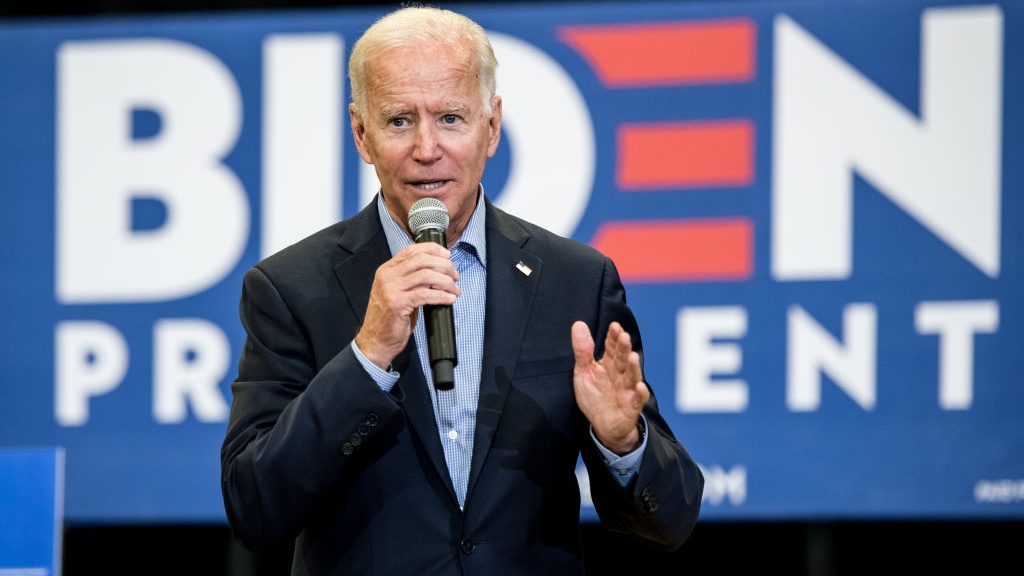Democratic presidential nominee Joe Biden participated in the CNN Presidential Town Hall Thursday night in Moosic, Pennsylvania. Anderson Cooper moderated the outdoor event, which was similar to the ABC News town hall earlier this week with President Donald Trump.
Biden’s event fleshed out some of the specifics of his campaign, which has been criticized, even by allies, for being too vague and middle-of-the-road while highlighting the presidential candidate's approach to politics.
Here are four key takeaways:
1. He's not a radical
Biden attempted to carve out positions that would be tolerable to both progressives and conservatives.
He discussed adopting some specific progressive policies, like achieving net-zero carbon emissions. But he also supported continued use of “fracking” techniques to extract natural gas. Biden's answer to a question about the Green New Deal was that he has his “own deal."
Biden also rejected association with the movement to defund police. But he also referenced the death of Ricardo Muñoz. The 27-year-old Muñoz was recently killed by police in Lancaster, PA, after his family called 911 in an attempt to have him involuntarily committed for a mental health crisis according to Lancaster Online. Biden said that he would make sure that “psychologists and psychiatrists available to go out to deal with those circumstances.”
In other words, he endorsed the type of philosophy that is the basis for much of the “defund the police” movement.
2. He finds racism to be more of an individualized issue rather than a systemic one
Referencing President Trump’s recent dismissal of the idea of white privilege, Cooper asked if Biden believed he had benefited from being white.
Biden was unequivocal that he benefited from privilege of “not hav[ing] to go through what [his] Black brothers and sisters have had to go through.” He accurately described “the talk” and how he never had to give it to his kids when they learned to drive.
But Biden also made it clear that he thinks that the worst of America’s racial problems come from individual bad actors or as a result of poor or malicious leadership. According to Biden, police brutality is the result of a few bad cops (who exist in the same way that there are a few bad senators or doctors or members of any other profession).
Biden does think institutions matter. He pointed to some important specific rules, such as disparities in mandatory sentences for drug crimes (which Biden both helped to create and later helped to alleviate). But he also thinks institutions are outcomes of choices. Essentially, Biden is saying that the president more or less gets to choose the systems and structures put in place in the nation.
3. Naturally, he equated growing up in Scranton is like being Black
Biden’s answer about white privilege led to a much longer follow-up. He discussed being looked down upon for growing up in nearby Scranton, PA. He said people from the area were often judged for not having college degrees or, in Biden’s case, not going to an Ivy League school.
He went on to compare the stereotypes of Scrantonians with those which Black people face. It appeared to go over well with the local crowd but it's awfully safe to say the analogy missed the mark in every other way.
4. He tells painfully long stories
While Biden has a tendency to offer personal and compelling anecdotes, the phrases heard along the way can be quite interesting. Thursday night was no exception. In one of his tales, Biden referenced both “A Black guy getting a nickel bag and snorting coke" and "someone who did a line in Park Avenue." There was also a lot of talk about manure of various kinds.
All these things add up to a man who's built an enduring political career based on the idea that any problem can be solved through building relationships and attempting to be relatable. The downfall with the aforementioned approach is being inherently out-of-touch — like with that very recent time he opted to start playing "Despacito" at an event for Latinx voters.
Whether the strength of Biden's empathy and relatability can overcome partisan gridlock and systemic inequalities is open to debate. But even though he goes too far at times, seeing Biden in action at the town hall on Thursday made a good case for his approach.
